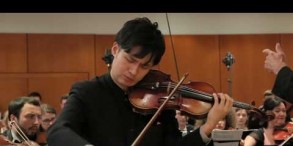G7's Hiroshima Declaration Calls for Visits to Hiroshima
Hiroshima was host to the foreign ministerial summit "G7" in prelude to the Ise-Shima Summit next month. The 2-day meet closed on April 11 afternoon with a declaration calling for "a world without nuclear weapons" and for visits by world leaders and as many people as possible to Hiroshima and Nagasaki, the sites of atomic bombing.
Foreign Minister Fumio Kishida, who chaired the meet, told the press that, while signing a joint communique, the foreign ministers had issued a "Hiroshima Declaration" stressing that Hiroshima and Nagasaki had suffered deadly blows and inhumane agonies, and calling as many people as possible to visit the cities victimized by A-bombs.
The declaration further welcomed the efforts of nuclear powers of G7 for improving nuclear transparency and expecting "others" (suggesting China) to further improving transparency by revealing the number of nuclear weapons.
Reference was made specifically on China's behaviors in the South China Sea. It is significant that the foreign ministers of G7 collectively expressed concerns over this region.
The foreign ministers visited the Atomic Bomb Museum in Hiroshima and stayed beyond scheduled 30 minutes to over 50. Minister Kishida found their visit of the museum most meaningful as a historic step forward to raising international awareness to a world without nuclear weapons.
US Secretary of State John F. Kerry tweeted:
"I am honored to be the first US Secretary of State to visit the Peace Memorial Park and the Atomic Bomb Museum. People of the world should visit the museum and feel the impact of the exhibits.
"All these exhibits remind us we not only have the obligation to remove the threats of nuclear weapons but should also do our utmost to prevent war itself.
”War is the ultimate measure; it should never be the first option."
The British Foreign Minister Phillip Hammond noted in the guest book:
"This is an importance place and I am deeply moved. We ought to do our utmost to create a world without nuclear weapons where disputes are settled through dialogue and compromise."
A memorable breakthrough, indeed. I'm Nathan Shiga and very pleased to share this episode with you.










